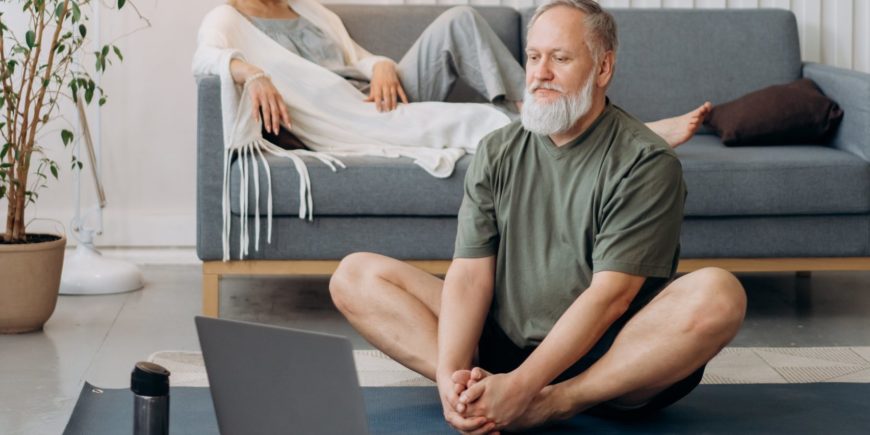Maintaining fitness becomes increasingly important as we age. Regular exercise not only helps seniors maintain strength, balance, and mobility but also promotes overall health and enhances quality of life. In this article, we will explore the significance of fitness for seniors and provide valuable insights on how to stay active and healthy as you age. From strength training to cardiovascular exercise and flexibility work, we will delve into the key components of a well-rounded fitness routine for seniors. Let’s discover how staying active can empower seniors to maintain strength and mobility well into their golden years.
- The Benefits of Exercise for Seniors
Engaging in regular exercise offers numerous benefits for seniors. It helps maintain muscle strength, bone density, and joint flexibility. Physical activity improves cardiovascular health, lowers the risk of chronic conditions like heart disease and diabetes, and boosts cognitive function. Exercise also supports mental well-being and reduces the risk of depression and anxiety. Seniors who stay active experience improved balance and coordination, reducing the chance of falls and related injuries. Overall, exercise enhances independence, allows for an active lifestyle, and promotes a higher quality of life in older adults. - Strength Training for Seniors
Strength training is crucial for maintaining muscle mass and functional strength as we age. It helps counteract age-related muscle loss (sarcopenia) and improves overall physical performance. Seniors can engage in strength training using bodyweight exercises, resistance bands, or weight machines. Focus on compound exercises that target multiple muscle groups, such as squats, lunges, chest presses, and rows. Start with light weights or resistance and gradually increase as strength improves. Aim for two to three strength training sessions per week, allowing time for adequate rest and recovery. - Cardiovascular Exercise for Seniors
Cardiovascular exercise is essential for maintaining heart health, endurance, and overall fitness. Engaging in activities like walking, cycling, swimming, or using elliptical machines can elevate heart rate, increase lung capacity, and improve circulation. Seniors should aim for at least 150 minutes of moderate-intensity aerobic exercise per week or 75 minutes of vigorous-intensity exercise. Break it down into manageable sessions, such as 30 minutes of exercise on most days of the week. If necessary, start with shorter durations and gradually increase intensity and duration over time. - Flexibility and Balance Training
Flexibility and balance exercises are crucial for seniors to maintain mobility, prevent injuries, and support activities of daily living. Incorporate stretching exercises for major muscle groups, such as quadriceps, hamstrings, shoulders, and back. Gentle yoga or tai chi classes can provide additional benefits by improving balance, coordination, and flexibility. These exercises reduce the risk of falls and promote functional independence. Aim for flexibility and balance training at least two to three times per week, focusing on proper form and gradual progression. - Safety Considerations
Safety should be a top priority for seniors engaging in fitness activities. Before starting any exercise program, consult with a healthcare professional, especially if you have any pre-existing medical conditions. Start with low-impact exercises and gradually progress to more challenging activities. Always warm up before exercising and cool down afterward to prevent muscle strains or injuries. Stay hydrated, wear appropriate footwear, and use assistive devices if necessary. Listen to your body and modify exercises as needed to accommodate any limitations or discomfort. - Finding Social Support
Engaging in fitness activities with others can provide social support and increase motivation for seniors. Joining group exercise classes, walking clubs, or participating in community-based fitness programs allows seniors to connect with like-minded individuals and enjoy the benefits of social interaction. Additionally, exercising with a friend or family member can make workouts more enjoyable and help maintain accountability.
Fitness plays a vital role in maintaining strength, mobility, and overall well-being for seniors. Regular exercise, including strength training, cardiovascular workouts, flexibility exercises, and balance training, helps seniors maintain independence, reduce the risk of chronic diseases, and enhance their quality of life. Prioritize safety by consulting with healthcare professionals, starting slowly, and listening to your body. Seek social support through group activities or exercising with a partner. By staying active and incorporating fitness into daily life, seniors can enjoy the physical, mental, and social benefits that come with maintaining strength and mobility as they age.
Alpha Expat can help you reach your fitness and nutrition goals with bespoke solutions. Reach out to us and get to ball rolling or click on the WhatsApp button in the lower right corner.
Images: Pexels.com

